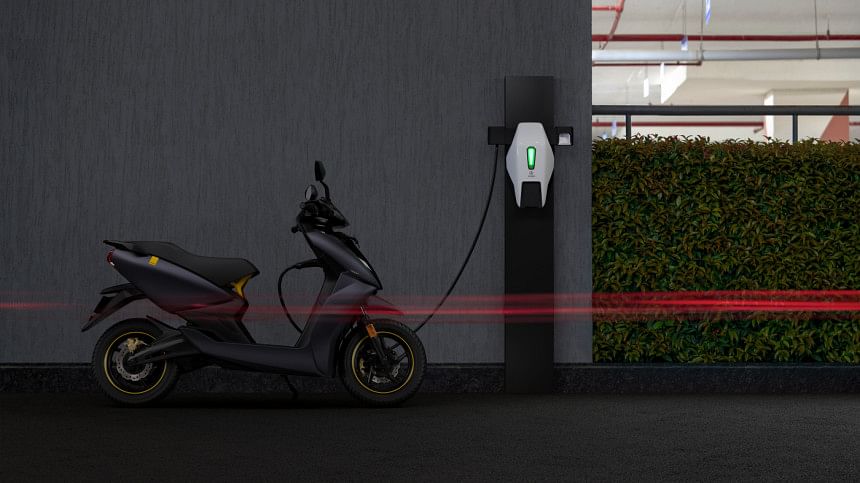Here's why Electric Vehicles are better for the environment

In recent years, the rise of electric vehicles (EVs) has revolutionised the automotive industry, offering a sustainable and environmentally friendly alternative to traditional fossil fuel-powered cars. With compelling evidence pointing to the detrimental effects of fossil fuel consumption on our planet, it is imperative that we embrace electric mobility as a key solution to combat climate change and improve air quality.
One of the most compelling reasons why electric vehicles are better for the environment is their significantly reduced greenhouse gas emissions compared to internal combustion engine (ICE) vehicles. According to the International Energy Agency (IEA), transport is responsible for nearly a quarter of global carbon dioxide emissions, with the majority coming from road vehicles. EVs produce zero tailpipe emissions, meaning they do not release any carbon dioxide or other harmful pollutants directly into the atmosphere. This has a profound impact on mitigating climate change by reducing our carbon footprint.
Furthermore, transitioning to electric vehicles also helps to improve air quality, particularly in urban areas where air pollution is a persistent problem. The Union of Concerned Scientists reports that exhaust emissions from ICE vehicles contribute to smog formation and harmful particulate matter, which have severe health implications, including respiratory illnesses and cardiovascular diseases. By embracing electric mobility, we can significantly reduce these harmful emissions, creating cleaner and healthier environments for all.
The technological advancements in battery technology and the rapid expansion of charging infrastructure have made EVs more practical and convenient than ever before. Today's electric vehicles offer impressive driving ranges, often exceeding 200 miles on a single charge. Moreover, with the development of fast-charging stations, the time required to recharge an electric vehicle has dramatically reduced, making long-distance travel a feasible option. Additionally, the overall maintenance costs of EVs are lower compared to conventional vehicles, as they have fewer moving parts and do not require regular oil changes or engine tune-ups.
Critics of electric vehicles often raise concerns about the environmental impact of battery production and the electricity sources used for charging. While it is true that manufacturing batteries involves the extraction and processing of minerals, including lithium, cobalt, and nickel, it is essential to recognise that advancements in technology are driving improvements in battery production, making it more efficient and sustainable. Moreover, the growing renewable energy sector ensures that EVs can be powered by cleaner sources, further reducing their environmental impact.
In the context of Bangladesh, while electric vehicles hold great promise for a cleaner and sustainable future, it is important to acknowledge the current limitations, particularly the lack of EV infrastructure. Bangladesh, like many developing countries, faces challenges in terms of establishing a robust charging network and addressing range of anxiety concerns.
One of the main hurdles is the scarcity of charging stations across the country. The limited availability of charging infrastructure makes it difficult for EV owners to conveniently recharge their vehicles, especially during long journeys. The development of a widespread charging network is crucial to encourage the adoption of EVs and alleviate concerns regarding range limitations. Collaborative efforts involving the government, private sector, and international organizations can help accelerate the deployment of charging stations, both in urban areas and along major highways, enabling EV users to travel with confidence.
Moreover, the affordability and accessibility of electric vehicles pose challenges in Bangladesh. While EV technology is becoming more cost-competitive globally, the upfront price of electric vehicles, including import duties and taxes, may still be a barrier for many potential buyers in the country. Initiatives such as tax incentives and subsidies can play a significant role in making EVs more affordable and encouraging their adoption among the general population.
Despite these challenges, the Bangladesh government has shown its commitment to promoting electric mobility. Among other initiatives, the government announced a policy that aims to have at least 15% of all vehicles on the road running on electricity by 2030 and recently the Bangladesh Road Transport Authority finalised a guideline for proper operation and registration for EVs in the country. These initiatives demonstrate a strong vision for a sustainable transport sector. To achieve this goal, it is essential to address the infrastructure gaps and collaborate with international partners to share best practices and knowledge.
While electric vehicles offer significant environmental benefits, including reduced emissions and improved air quality, their widespread adoption in Bangladesh faces challenges related to EV infrastructure and affordability. Addressing these limitations will require a collaborative approach involving government initiatives, private sector investments, and public awareness campaigns.

 For all latest news, follow The Daily Star's Google News channel.
For all latest news, follow The Daily Star's Google News channel. 








Comments